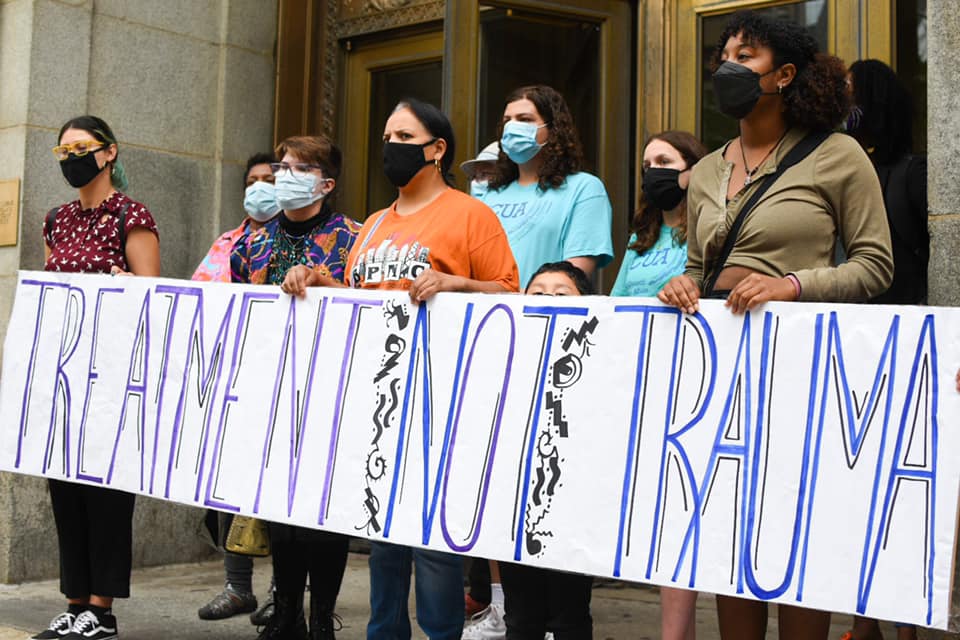Margaret Vocos, LSW
CCIH Staff Therapist

Maggie Vocos, LSW
Pronouns: she/her/hers
Articles written by Margaret Vocos, LSW
-

Building a Somatic Vocabulary
You might be familiar with the “feelings wheel” – a helpful tool in building awareness of emotions that bring more specificity to our experience, especially when trying to communicate it to another person. Identifying our feelings can also help us identify our needs, ways to cope, increase our understanding of self, sense into boundaries, or…
-

Treatment not Trauma: Demanding Reinvestment in Chicago’s Mental Health Infrastructure
There are currently only 5 community mental health clinics in all of Chicago. Half of the public clinics were closed or privatized in 2012 under Rahm Emmanuel, and before that, reduced from 19 clinics to 12 under Richard Daley. For the past 30 years, community mental health resources in the city have been stripped away,…
-

Starting Small: Building Capacity for Present-Centered Awareness
A history of trauma can make it difficult to feel present. Often in an effort to stay safe, our mind and body pull us into our past or become hyper-vigilant about our future. Though these strategies are adaptive and often helpful in surviving traumatic experiences, when they become habitual we can be left feeling out…
